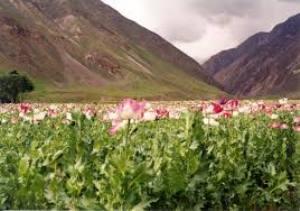People lined up to buy legal marijuana in Massachusetts Tuesday, Connecticut's governor says legalization is a priority for him, Afghan opium production is down, but still at high levels, and more.

Connecticut Governor Says Legalization a Priority. Incoming Gov. Ned Lamont (D) said Monday he intended to make marijuana legalization a priority next year. "We're going to have a legislative session. It's going to be one of the priorities we got," Lamont said. "It's something I would support, and I don't want the black market controlling marijuana distribution in our state. I think that's a lousy way to go. Canada, Massachusetts, others are doing it," he added. "That's going to lead to some enforcement things. In the meantime, we enforce Connecticut laws."
Massachusetts' First Day Legal Pot Sales Draws Crowds. Hundreds of marijuana lovers lined up before dawn Tuesday to be among the first people on the East Coast to be able to legally purchase recreational marijuana. The crowds brought gridlock to Leicester's Main Street as they gathered to buy weed. By noon there was an approximately three-hour wait in the cold, wet weather to get inside.
International
UNODC Says Afghan Opium Production Drops, But Still at High Levels. The UN Office on Drugs and Crime reported Wednesday that opium cultivation in Afghanistan is down 20% this year compared to 2017, but was still the second-highest measure of poppy cultivation since UNODC starting monitoring in 1994. UNODC cited a severe drought and declining opium prices for the decline.
Mexico's President Presents Plan for National Guard to Fight Drug War. President-elect Andres Manuel Lopez Obrador (AMLO) on Tuesday submitted a bill for a new national guard to replace the military in the fight against organized crime. The bill would create a force 50,000 strong drawn from the ranks of the armed forces and police, but critics point out to failed previous reorganizations of the anti-drug apparatus as well as warning the move could further militarize the country's drug war.
This work by StoptheDrugWar.org is licensed under Creative Commons Attribution-ShareAlike 4.0 International
Add new comment